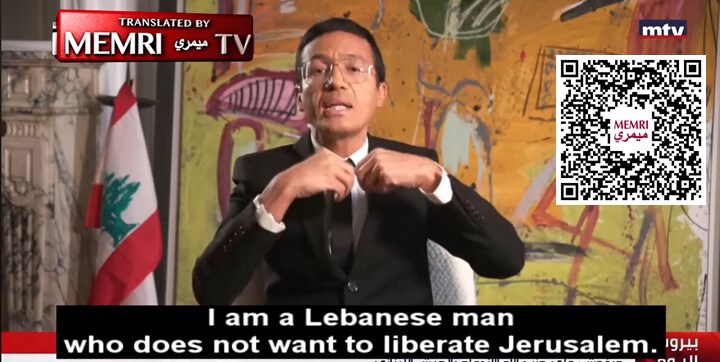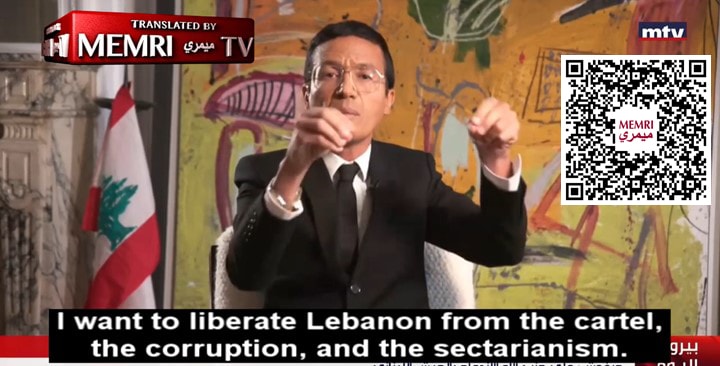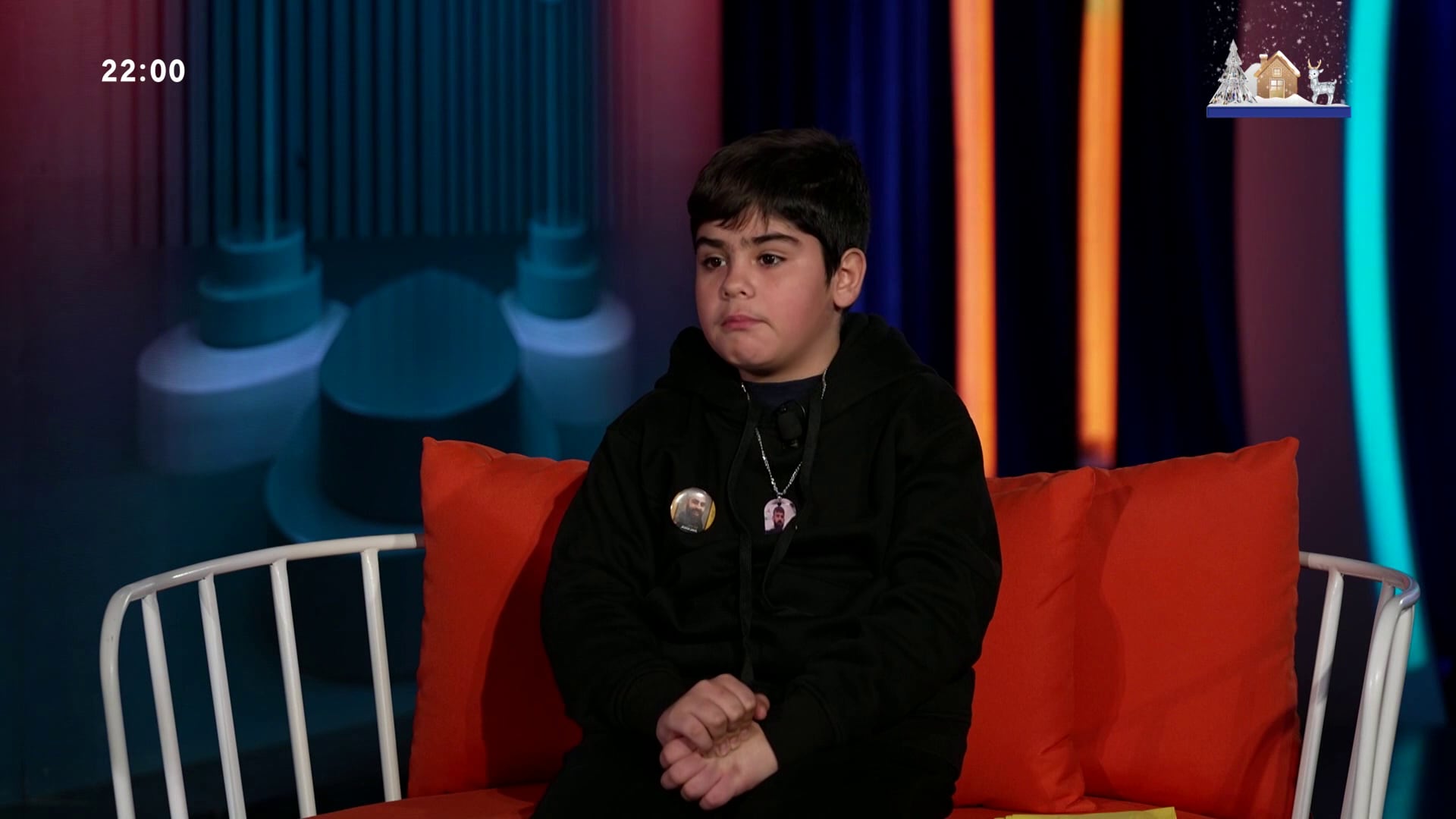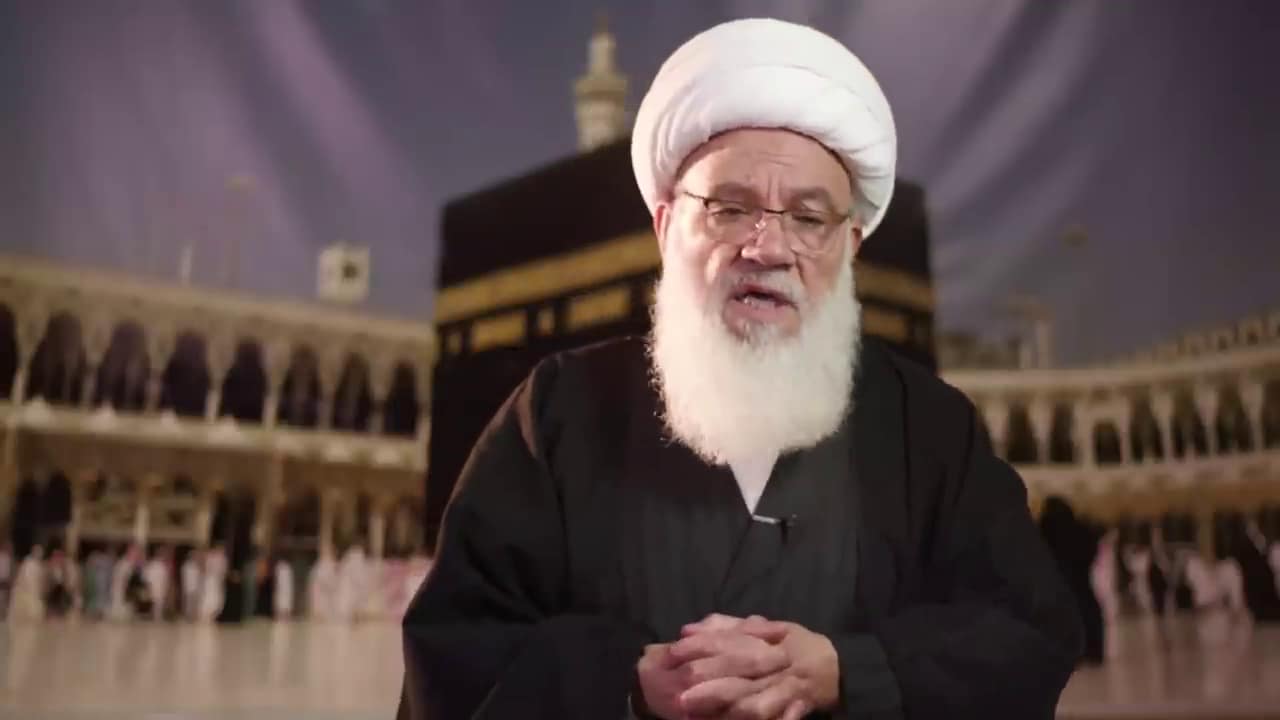
Paris-based Lebanese film producer Omar Harfouch said in a December 9, 2022 interview on MTV (Lebanon) that the recent maritime border deal between Israel and Lebanon is de facto recognition of Israel and makes him "very optimistic", since it means that Israel is no longer an enemy of Lebanon. He said that liberating Jerusalem is part of Hizbullah's ideology, but that he has no interest in this, particularly since there are several agreements between Israel and the Palestinians. He elaborated: "[I] don't want to liberate Jerusalem... I want to liberate Lebanon from the cartel, the corruption, and the sectarianism."
Omar Harfouch: "I am very optimistic about the demarcation of the [maritime] border. First of all, we resolved a big problem with [Israel] that was an enemy of Lebanon and which we did not recognize. Today, we recognize it and it is no longer an enemy of Lebanon. This is a big challenge..."
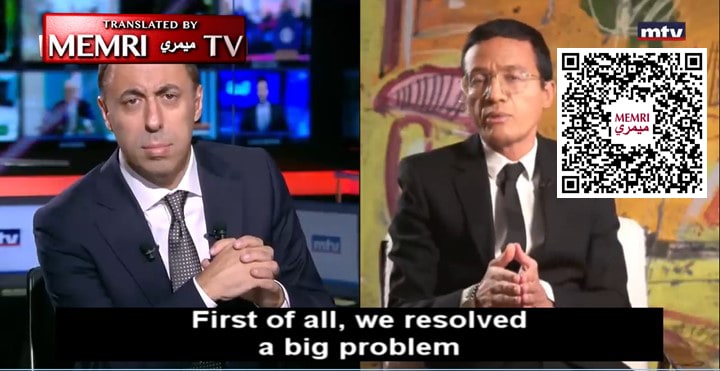
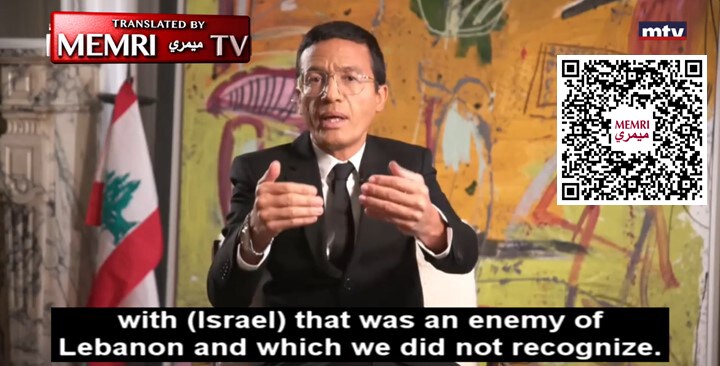
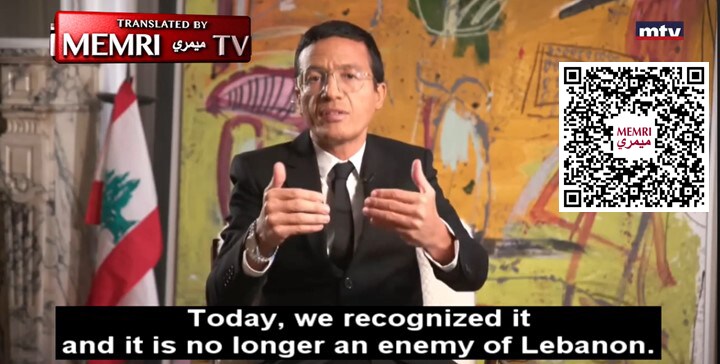
Interviewer: "Israel is still an enemy... Practically speaking, it is still an enemy."
Harfouch: "Whose enemy? Maybe yours, but..."
Interviewer: "Not mine, but..."
Harfouch: "No. [Israel] is no longer an enemy."
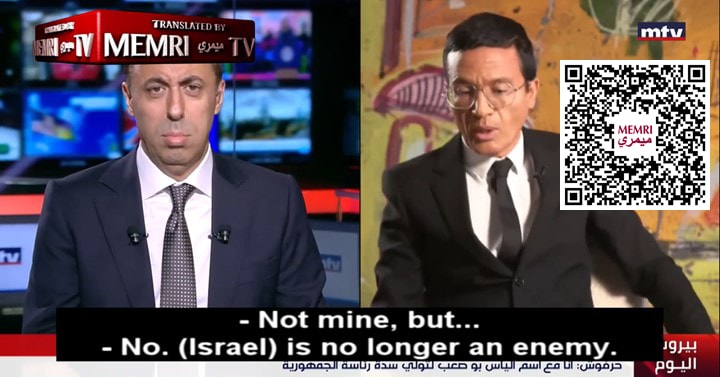
Interviewer: "It is for a large part of the Lebanese public and for the Lebanese state."
Harfouch: "Let me present the facts."
Interviewer: "Go ahead."
Harfouch: "The facts are that Lebanon had not recognized Israel and had considered it to be an enemy, but when the border demarcation took place, and the line was drawn between Lebanon and Israel, Lebanon de facto recognized the State of Israel.
[...]
"The liberation of Jerusalem is part of Hizbullah's ideology, but I, Omar Harfouch, as a Lebanese — why would I want to liberate Jerusalem? From whom should I liberate Jerusalem? My country is Lebanon. Any other country — Syria, Cyprus, Turkey, Palestine, Israel... Now that [Lebanon] recognized it, we can start using the word "Israel"... All those are foreign countries.


"Why am I supposed to outdo the Palestinians, and liberate their country or their capital city for them?
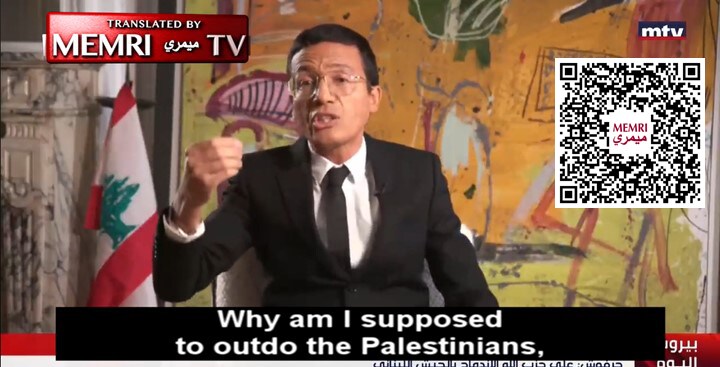
"The Palestinians accepted this state of affairs. They recognized Israel, signed a peace agreement with it, and divided the land. Whether ]Israel] abides by the agreement or not — that is the Palestinians' problem, I want to solve Lebanon's problems.

[...]
"If there is peace in the region, when someone from Hizbullah wants to pray in the Al-Aqsa Mosque, he will go there by car or by train... Jerusalem is not far. He will be able to go there on Friday, pray, and come back, just like they make pilgrimages to places in Iran and Syria. Perhaps I will go myself to visit places in [Israel]. I would like that, but I have no desire to fight a foreign country and shed blood in order to pray there. No, this is not necessary.

[...]
"Lebanon is important to me. I don't care about praying in Jerusalem. If they want to pray — Lebanon is full of mosques, and they can go on pilgrimage and pray in Mecca. This ideology is foreign to us. We don't want to liberate Jerusalem. I am a Lebanese man who does not want to liberate Jerusalem. I want to liberate Lebanon from this cartel of corruption, and the sectarianism."
